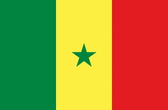
Call 0330 880 3600 Calls may be monitored or recorded. Opening Times.
- TRAVEL INSURANCE
- COVID-19 COVER
- More Options
- Help & Advice
- Existing Customers

Call 0330 880 3600 Calls may be monitored or recorded. Opening Times.

Need help?
UK Customer Services0330 880 3600*
Open Monday to Friday 9:00am to 6pm, Saturday 8:30am to 4pm and closed Sundays.
*Calls are recorded for training and quality purposes.

Official name: Republic of Senegal
Capital city: Dakar
Languages spoken: French, Wolof
Population: Around 17 million
Currency: West African CFA franc (XOF)
Time zone: GMT+0
Driving side: Right
Climate: Tropical, with a wet season from June to October and a dry season from November to May
Senegal is a vibrant West African nation known for its music, hospitality, and diverse landscapes - from Dakar’s buzzing markets to the wildlife of Niokolo-Koba National Park. With a coastline stretching along the Atlantic, it’s also a gateway to golden beaches, colourful fishing villages, and UNESCO-listed heritage sites like Gorée Island and Saint-Louis.
Politically, Senegal is considered one of West Africa’s more stable democracies. However, travellers should be mindful of local laws and customs: homosexuality is illegal and LGBTQIA+ travellers may face risks. Modest dress is recommended, particularly in rural or religious areas, and respect for Islamic traditions is expected, especially during Ramadan. Public demonstrations can occur in Dakar and other cities - visitors should avoid large gatherings.
Senegal lies on the westernmost point of Africa, bordered by Mauritania, Mali, Guinea, Guinea-Bissau, and completely surrounding The Gambia. Its terrain includes sandy plains, tropical forests, and the Sahelian savannah. The Senegal River defines much of the northern border.
Dakar’s Blaise Diagne International Airport (DSS) is the main international gateway. Overland travel is possible to neighbouring countries, but roads may be poor in rural areas. Public transport includes shared taxis and minibuses, though these can be crowded. Highlights include Lac Rose (Lake Retba), Djoudj National Bird Sanctuary, the Casamance region, and Senegal’s lively music and dance culture.
UK nationals require a visa for entry, which can usually be obtained online or at Senegalese embassies. Passports should be valid for at least six months from arrival. The British Embassy is in Dakar, providing assistance to UK travellers.
Senegal uses the West African CFA franc (XOF), which is also used in several neighbouring countries. ATMs are available in cities, and credit cards are accepted in larger hotels and restaurants, though cash is preferred elsewhere. Tipping is customary for good service.
Healthcare facilities are limited outside Dakar. Travellers should ensure they have comprehensive travel insurance covering evacuation. Yellow fever vaccination is required for entry. Malaria is common, so prophylaxis is strongly recommended, along with mosquito precautions. Tap water is not considered safe to drink — bottled or filtered water is best.